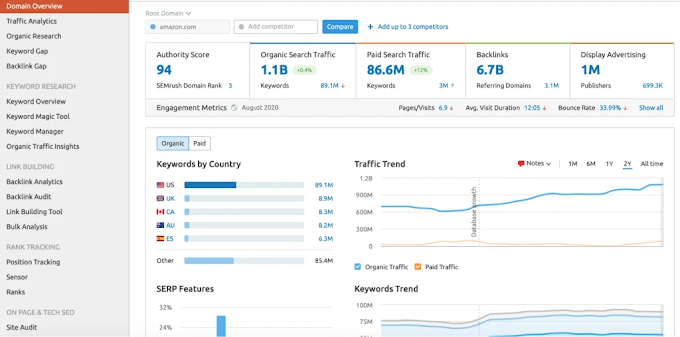The first step towards good SEO is implementing on-page techniques. On-page SEO refers to all the changes you make on your website so that search engines can pick up the content.
The following list will help you make your website more search engine friendly:
Create quality content: The first thing you should do is create good content. Quality content means that it is unique, relevant, and informative. If you want to rank well in Google, you must write for humans first, then for Google second. Your goal should be to write something that people want to read and share, not just something that will rank well in search engines.
Create a sitemap: A sitemap is a file that contains all the pages of your website and helps search engines find them easily. The best way to create a sitemap is by using an online generator like XML Sitemaps. You can also add it manually by adding special tags in the header of each page on your site. You can learn more about this here: https://developers.google.com/search/docs/advanced/sitemaps/overview
Content optimization: You need content that is genuine and easy to read by both humans and bots. You can achieve this by using relevant keywords throughout your content, but don’t overdo it because it may look excessive. The best way to implement this is by researching and analyzing what your target audience looks for online, then creating content that answers their questions or concerns.
Title tags: Title tags are the first thing people see when they visit your site through search engines. Make sure they reflect what you want them to know about the product or service you are offering.
Meta descriptions: Meta descriptions are short summaries of what your page has to offer that appears on search engine results pages (SERPs). It should be between 150-160 characters long and also include a keyword or two (but don’t overdo it).
Keywords:- Use relevant keywords in page titles, content, and headings. However, don’t overdo it with the keywords – Google will penalize sites that use too many popular keywords on their page because they know they aren’t original content and they could be trying to manipulate search results. The key here is relevance – if you’re writing about puppies, make sure you include the word “puppies” somewhere in your title! But don’t go overboard – just make sure your keywords are natural parts of the text and not just thrown in there to get a boost in rankings.
Alternative Text:- Make sure all images have ALT text (alternative text) associated with them so that any image links that appear on Google Image Search will show up as text when users click through to your site.
Internal linking: Linking between pages of a website is called internal linking, and it's one of the best ways to create a cohesive user experience across multiple pages of your website while also improving SEO by creating more opportunities
External Links:- Links from relevant sites can significantly improve a website's ranking in search results because it indicates that other respected websites think highly of it too. But don't go overboard with links from spammy sites or ones with little authority just to get more links — they won't help you much. Instead, look for high-quality links that make sense and add value to your audience's experience on your website







